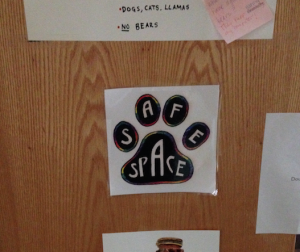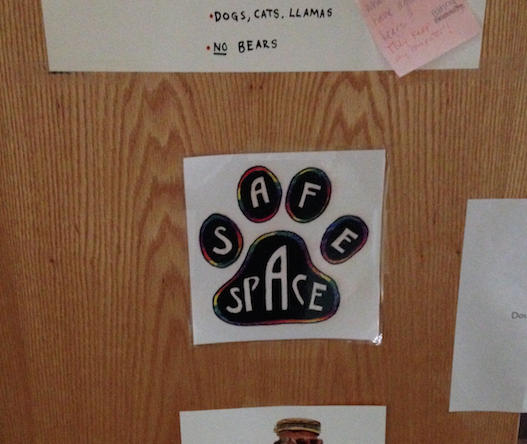In April, the Department of Education’s Office for Civil Rights released a document prohibiting schools that receive federal funds from discriminating against students because of their gender identity or expression.
The document reads, in part, “Title IX’s sex discrimination prohibition extends to claims of discrimination based on gender identity or failure to conform to stereotypical notions of masculinity or femininity.”
Dean of Students Karen Lange said that, as part of the university’s Title IX compliance, St. Thomas will begin reporting hate crimes against transgender students. Lange said she believes the clarification is a positive thing.

“I think it’s great,” Lange said. “I think we’re more transparent with any kind of hate crimes based on gender identity, so I think this is a positive step.”
Junior Ashley Allan, a transgender woman, said she experiences discrimination on campus. Allan said people have shouted slurs at her from dorm room windows and stare at her.
“On the way here, folks will stop whatever they’re doing and just kind of stare,” Allan said. “Folks can’t help but look at me, and it feels very silencing or that I’m not welcome here.”
Allan said she believes St. Thomas needs to address the issues she has faced and work to make the university a more welcoming environment. The University of Minnesota has announced plans to offer gender nonspecific housing by 2015, something Allan said she thinks is a step forward.
“The reason that’s so important is because there are folks who are neither men or women, and it’s not exactly a welcoming space if they keep having to deny what their correct gender is,” Allan said.
Theology professor Cara Anthony, faculty adviser for the St. Thomas’ Allies club, said St. Thomas has a lot to work on.
“I think that we could do much much more than we’re doing. There’s very little specific resources, support or even active consideration of transgender students on this campus,” Anthony said. “I think it’s very easy for cisgender people to simply not notice and not care because if it doesn’t affect me personally, I don’t have to think about it.”
Lange said the harassment of transgender students on campus is not acceptable, and that if students are having issues, they should come forward.
“We support all of our students, and that includes our transgender students,” Lange said. “If students are coming forward and asking us to work with them around, particularly, issues we certainly do that.”
Allan said she would like to have the option to change her name on Blackboard and Murphy Online, but she is unable to do so unless she makes the change legally. But according to Lange, the name change must be official before it can be altered in the school’s records.
“I can’t imagine us changing a name without the legal documentation for any reason,” Lange said.
Anthony said that while St. Thomas may not follow in the University of Minnesota’s footsteps, something needs to change.
“I think that we need to have a discussion on the campus about what full welcoming and acceptance looks like at our university,” Anthony said. “Title IX alone is not going to magically change St. Thomas culture, but it is one piece of the of the picture of what change looks like.”
Grace Pastoor can be reached at past6138@stthomas.edu.


I agree with Lange. In order for any records to be changed, a legal name change has to be in order. It’s common sense since it’s a legality thing. Yet incredibly expensive to not only pay the price at court (some $300) but also go through the heartache and time of changing every other name on any identification or documents (loans, ID’s, passports, etc).
I disagree about needing the legal name change. I work at the University of Rhode Island where they have instituted an excellent preferred name program on campus. Professors receive the name that students prefer over their legal name, as will all student support services that need to access student information. The only reason the legal name is necessary is the diploma for proof of an individual’s graduation, and perhaps some other situations like getting a job on campus.